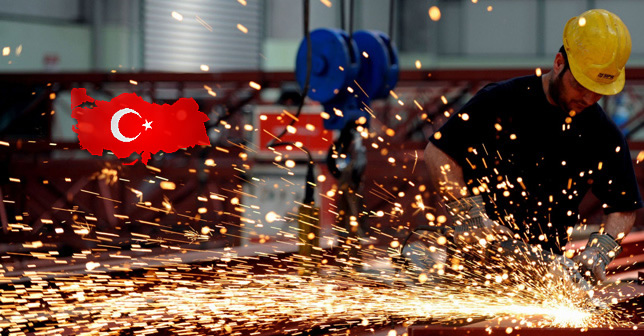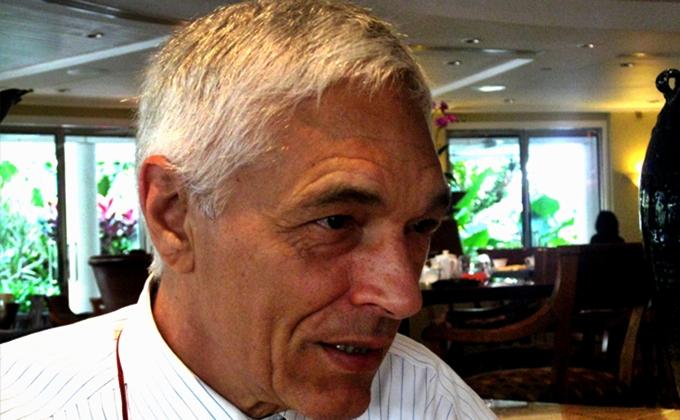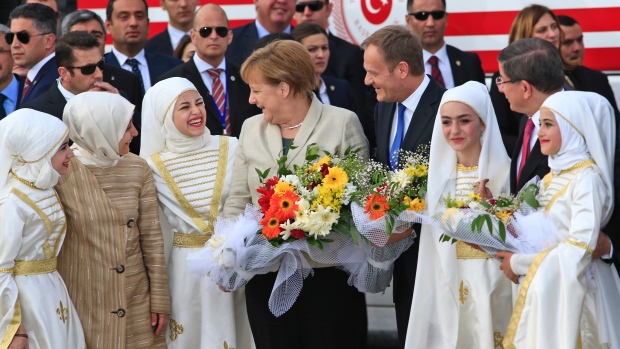Croatian president: EU should not put up new obstacles for Turkey’s membership
 Croatian President Ivo JosipovicCroatian President Ivo Josipovic, whose country started membership talks with the EU about the same time as Turkey but which completed its accession talks in June of this year, has said the EU shouldn’t put up new obstacles and conditions with regard to Turkish membership, in an exclusive interview with Today’s Zaman.
Croatian President Ivo JosipovicCroatian President Ivo Josipovic, whose country started membership talks with the EU about the same time as Turkey but which completed its accession talks in June of this year, has said the EU shouldn’t put up new obstacles and conditions with regard to Turkish membership, in an exclusive interview with Today’s Zaman.
Josipovic said he was aware of the uneasiness felt by Turkey over Croatia’s early accession, but said his country had also been subject to some unfair practices. “We as Croatia know that some countries that joined the EU earlier did not have to answer some of the questions that we had to answer.” He noted that, however, Turkey and Croatia also have vast differences. “Turkey is a big country. It is a big country both in terms of population and other aspects, so the EU is acting with caution.”
The Croatian president said he agreed with the increasingly held view that the EU has stronger reasons to accept Turkey’s membership than in 2005. “Eight percent growth shows how strong the Turkish economy is.
I believe that Turkey will make important contributions both to its region and to the EU given its influence and potential in the region and also the activities of EU citizens of Turkish origin.” He said his country was a supporter of Turkey’s EU membership, as long as it meets the bloc’s membership criteria. “But there should be no new conditions requested from Turkey in this process,” he said.
Evaluating the Turkish role in the Balkans, Josipovic said Turkey’s contribution was helping to develop cooperation, adding that his country also had good ties with Balkan countries. He noted that in the speech he delivered in the parliament of Bosnia and Herzegovina, he admitted that Croatia had made past policy mistakes concerning Bosnia and Herzegovina. “Croats living in Bosnia and Herzegovina should start seeing Sarajevo as their capital; they should be looking there.”
Turkey is also an important country for Croatia, the president said, noting the support shown by Ankara during the Croatian war of independence. He said the political ties between the two countries were sound, but complained that the two countries have failed to translate this relationship into economic ties. “The economic relations aren’t at the level we would like them to be. Here, there is more Croatia needs to do. Croatia hasn’t been able to see Turkey’s full potential.” He noted that the government to be formed after the Dec. 4 general elections will have a better opportunity to realize this fact. “Positive feedback has come from Turkish businessmen seeking to invest. I hope these businesses will be given opportunities once the new government is formed.”
EU and NATO process
Josipovic said Turkey has proven itself to be a good friend in southeastern Europe, noting, “Turkey has made positive contributions for these three peoples,” referring to Bosnian Croats, Serbs and Muslims. He said he had some hope for the future of Bosnia and Herzegovina, “I am hopeful, but before anything else, this depends on the groups who now live there.” He said the country taking a long time to form its government was nothing to be happy about, but he said he was generally happy to see that Bosnia and Herzegovina was EU oriented and was likely to join NATO. During the country’s EU process, he said, some reforms could be carried out more quickly and the process could strengthen the country’s institutions.
Eid al-Adha, mosques
Earlier, the EU had allowed Croatia and Serbia a visa-free regime, but denied Bosnia and Herzegovina that privilege. As Bosnian Croats and Serbs are also citizens of Croatia and Serbia, respectively, they can enjoy unrestricted travel, while Bosnian Muslims cannot. Although the EU later fixed this mistake, this has not been forgotten. Josipovic clearly stated, “I think equal conditions should be granted to all three ethnic groups.”
Josipovic also said, in response to a question on the subject that xenophobia and Islamophobia in Europe were reaching dangerous levels, that “all kinds of hatred and hostility are dangerous, no matter at which religion or group it might be directed.” The president called on leaders to fight racism and xenophobia. He said Croatia, which has its own Muslim community, did not suffer from religious tension. He said he will be visiting the Islamic center (of Zagreb) prior to the upcoming Eid al-Adha and then visit a mosque on the first day of the holiday. In fact, Josipovic had congratulated Muslims celebrating Eid al-Fitr, which marks the end of Ramadan, after the Eid prayer.
04 November 2011
SOURCE: TODAYS ZAMAN





